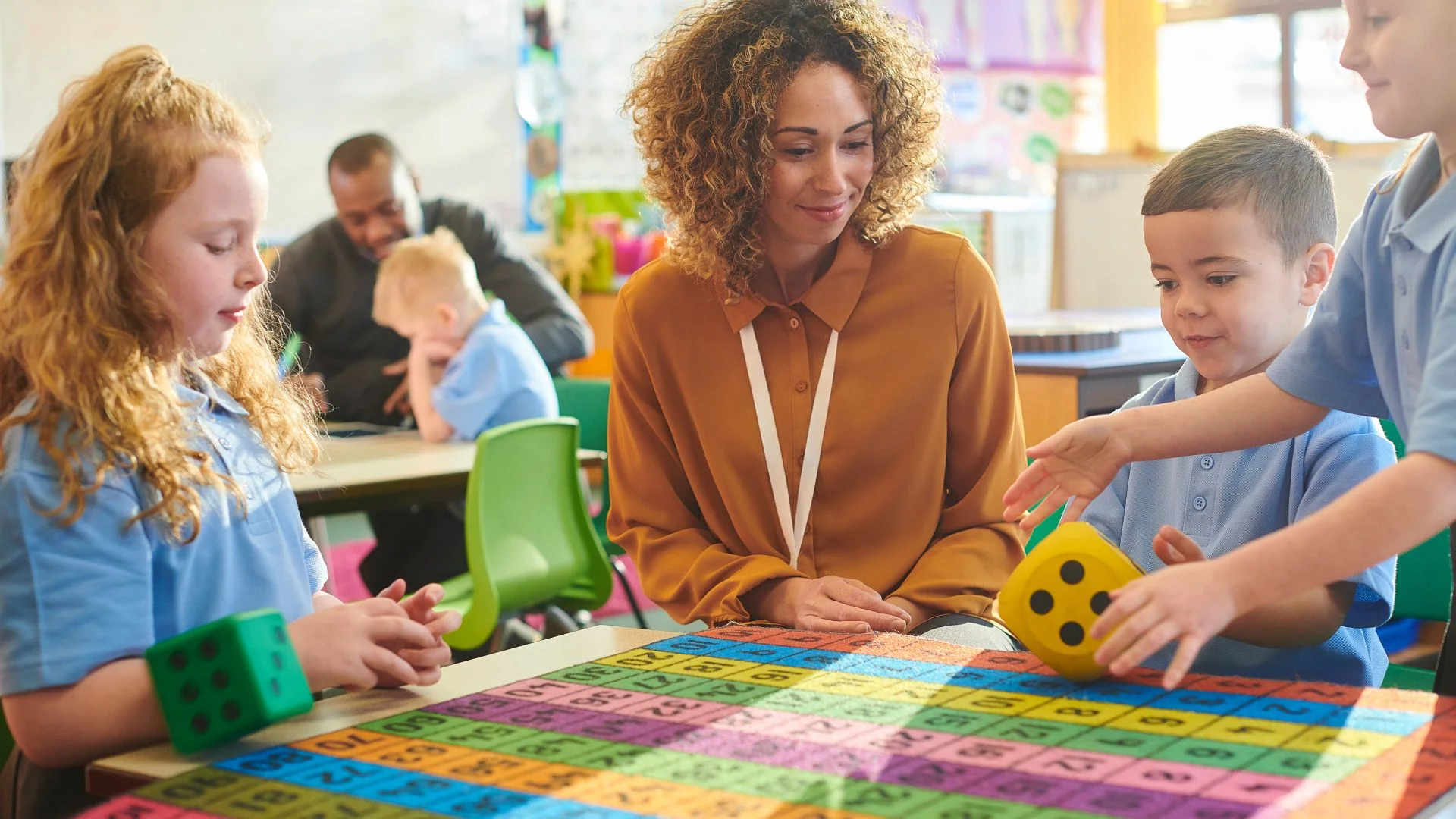Enhancing Speech and Language Skills Through Oracy
18 Jun, 20251-2 minutes
In this blog, you will learn:
- What oracy is and the benefits of it.
- How to enhance speech and language skills through oracy.
- How to teach oracy in the classroom.
- Discover more about our education recruitment services.
Early language development is crucial and schools have a responsibility to students to ensure that children and young people have equal opportunities to learn and thrive.
According to GL Assessment, half of primary school Teachers think up to 1 in 5 children have speech and language issues and a further 37% think the numbers are nearer to 2 in 5.
The same survey found that 6 in 10 Teachers think the problem has worsened in the past five years and that it has made teaching much more difficult. With teaching staff overwhelmed by the increasing number of children starting school already behind in their language skills, there is a need for targeted strategies and teaching to enhance speech and language skills.
The importance of oracy to improve students' communication has been explored in recent years, with some schools embedding oracy in lessons and measures in place to improve oracy.
The UK government recently announced plans to expand Early Language Support for Every Child (ELSEC) to overcome speech and language challenges before concerns escalate. With specialist teams being deployed across primary schools and early years settings, the £3.4 million programme is set to benefit up to 20,000 more children.
In this blog we explore the power of oracy in helping students enhance their social and emotional development. Throughout this blog, you’ll discover how teaching oracy in school can enhance speech and language skills to help students develop and thrive.
What is oracy?
Oracy or spoken language refers to the ability to express yourself and effectively communicate your thoughts through spoken language, using vocabulary, articulation, understanding and engagement.
The term oracy was first used in the 1960s by British professor of education Andrew Wilkinson to emphasise the educational importance of spoken language skills. Wilkinson defined oracy as ’the ability to use the oral skills of speaking and listening’ and believed spoken language skills were just as important as reading and writing.
In the classroom, oracy refers to the intentional practice and development of spoken language skills and encompasses listening, speaking and the thinking processes involved in expressing thoughts and engaging in conversation.
Oracy is increasingly recognised as an important aspect of education and is being integrated into schools to ensure students, particularly children with SEND are able to convey their ideas and make themselves understood.
What are the four oracy skill sets?
There are four oracy skill sets at the centre of oracy provision in the classroom that act as a framework for learning and add value to all-round education. The four oracy skill sets are reasoning and evidence, listening and response, expression and delivery, and organisation and prioritisation.
Often, lacking vital oracy skills are mistaken for maths and literacy problems which is why oracy skill sets can be taught and practiced in schools to help develop proficiency. This can be achieved through a variety of methods, including observing classroom discussions and analysing individual contributions.
By focusing on the quality of spoken contributions and encouraging students to participate in the classroom, schools can prioritise the most effective teaching and learning approaches.
How oracy enhances speech and language skills in children and young people
With an increasing number of children and young people struggling to communicate at the expected level for their age, enhancing speech and language skills is more important than ever.
Through verbal expression and active listening, oracy aims to create a rich and enjoyable learning experience that builds students’ confidence. Embracing oracy involves teaching students how to speak confidently, appropriately and sensitively and is crucial for deeper learning.
Speech and Language Therapists and oracy both focus on effective communication, however oracy specifically emphasises spoken language skills, while Speech and Language Therapists address broader communication challenges such as those related to speech, language and swallowing.
Oracy encourages students to speak and discuss their ideas, thoughts and opinions which increases engagement in learning. By focusing on spoken language and using it in lessons on a daily basis, there are plenty of opportunities for children and young people to develop their skills and become effective communicators.
Using oracy in the classroom to solve problems, engage in debates and collaborate, encourages children and young people to bring their own voices and experiences to school life.
How to teach oracy in the classroom
Ways to achieve high quality oracy education for students, include:
- Read aloud.
- Listen to audiobooks.
- Encourage group debates and class discussions to allow students to articulate their opinions, challenge ideas and refine their arguments.
- Utilise role play books, plays and activities using scripts and improvisation.
- Encourage students to recite poems and speeches or perform songs.
- Provide opportunities for students to do presentations and creative projects.
- Conduct interviews in the classroom to help students develop their questioning and listening skills.
- Integrate oracy across school subjects such as explaining methods in maths or exploring research in science.
What are the benefits of having speech and language skills?
Speech and language is key to children’s cognitive and social development and is vital for expression, understanding emotions and conveying information.
Teaching oracy skills in the classroom and putting spoken language at the heart of learning helps students with their self-confidence, awareness, resilience and empathy which can positively impact their academic achievement and future employability.
Oracy can improve literacy including reading, spelling and writing and plays a key role in cognitive development, helping children understand the world around them. By enhancing speech and language skills, Teachers can ensure that students not only have the academic skills to prepare them for their future career, but also the communicative skills to socialise, network and build relationships.
Having the skills to speak up and communicate requires practice and confidence and can prevent feelings of isolation as well as improve wellbeing. It also teaches students about the importance of having your voice heard and not ignored or overpowered.
According to the Sutton Trust, 96% of Teachers think life skills such as confidence, motivation, resilience and communication are as or more important than academic qualifications and 48% said they don’t have time to focus on improving oracy.
Mastering communication skills can improve children’s educational attainment, from improving SAT results in maths and science to improving reading, writing and reasoning skills.
Recruit SEND staff
As a specialist SEND recruitment agency, we support mainstream and SEND schools with their temporary, permanent and temp-perm staffing needs.
We currently work with hundreds of schools and have exclusive access to some of the best SEND Teachers and SEND Teaching Assistants in the North West.
If you’re struggling to fill a teaching vacancy, why not get in touch with one of our team to see how we can help?
- Primary schools - Jimmy Callagher
- Secondary schools - Liam Jones
- SEND schools - Jamie Heath
SEND jobs
If you’re searching for your next SEND job, why not take a look at the latest vacancies, or simply upload your CV to be notified when a relevant position becomes available.
Meet Jamie Heath
Who is Spencer Clarke Group?
Established in 2017, we’re an award winning and progressive recruitment agency based in the heart of the North West. Our reputation is built on trust, expertise and an unwavering commitment to exceed expectations.
In 2024, we were named Recruitment Agency of the Year at the prestigious Recruiter Awards, an accolade we are extremely proud of.





